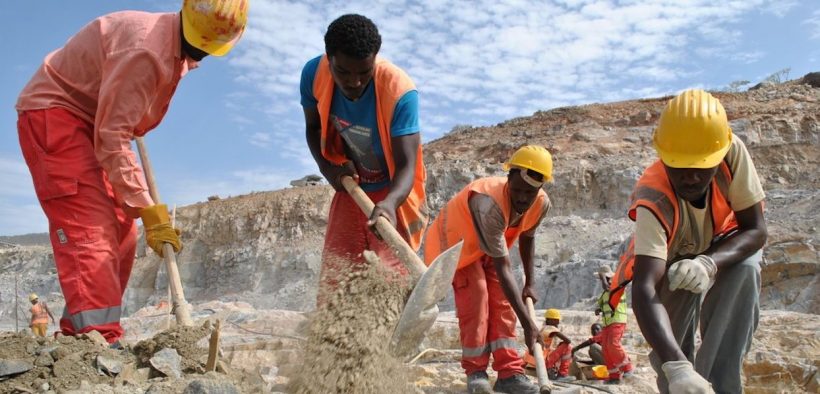Ethiopian PM Hints at Willingness to Go to War for Dam Project

Egypt and Ethiopia are locked in a stalemate over the massive Ethiopian Renaissance Dam project that Egypt worries could curtail their water supply.
In response to Tuesday remarks that suggested the Ethiopian Prime Minister Abiy Ahmad would be willing to go to war with Egypt to protect an Ethiopian dam project on the Blue Nile, Egypt expressed shock and regret calling the remarks “unacceptable.”
Abiy made the controversial remarks during a question-answer parliamentary session in Ethiopia’s capital of Adis Ababa.
“Some say things about use of force (by Egypt). It should be underlined that no force could stop Ethiopia from building a dam.
“If there is a need to go to war, we could get millions readied. If some could fire a missile, others could use bombs. But that’s not in the best interest of all of us,” Abiy said on Tuesday.
Abiy maintained that the Renaissance Dam is an “excellent” project with a foundation laid by his predecessors that he would resume building and promised its completion.
Earlier this month, Egypt declared that trilateral negotiations regarding the project involving Egypt, Ethiopia and Sudan reached a deadlock. However, Adis Ababa denied the allegation and believed that dialogue is still workable.
The Renaissance Dam Standoff
Over the past eight years, Ethiopia has embarked on building a giant hydropower dam on the Blue Nile. Ethiopia says the dam would provide the country with electricity and help preserve water for drinking and irrigation for the country’s 100 million residents.
Egypt, which has a similar population in size, has expressed grave concern over the dam’s construction, suggesting that the dam would deprive Egypt of large portions of the Nile’s water – the Nile provides 90 percent of the country’s water supply.
Recently, the three countries have been engaged in intensive negotiations in an attempt to remedy the disagreement and fairly allocate the Nile’s resources, but on October 5, Egyptian negotiators announced that talks with both Ethiopia and Sudan failed to find a compromise.
US May Mediate Renaissance Dam Conflict
In response to the standoff, the U.S. has reportedly invited the three neighboring countries: Ethiopia, Egypt and Sudan for meetings in Washington to negotiate a settlement.
Reuters reported that Egypt has accepted the invitation, but no date has been set for such talks.
A statement by the Egyptian Foreign Ministry confirmed delivery of the invitation to the foreign ministers of the three countries, but it did clarify whether Ethiopia or Sudan had accepted the invite.
Egyptian President Abdel Fattah el-Sisi is expected to meet with Ethiopian Prime Minister Abiy Ahmad this week in Russia on the sideline of a Russian-African summit. Sisi earlier signaled his country’s intention to ask for mediations by either the World Bank or the United States.
Israeli Defense Systems
Meanwhile, the Israeli Embassy in Cairo denied media leaks that Israel has helped deploy Israeli air defense systems around the Renaissance Dam, dubbing such leaks “merely rumors.”
“There have been some rumors recently that Israeli air defense systems are being used to protect Ethiopia’s Renaissance Dam… these are just rumors,” the Israeli embassy posted on its official Facebook page.
As Xinhua News Agency wrote, Israeli media outlets recently said tension between Israel and Egypt has been high after Israel allegedly installed air defense systems around the GERD.
The embassy’s Facebook post, however, expressed hope that the current dispute between the two countries will be sorted out soon.





![Egyptian Whistleblower, Mohamed Ali, Announces Movement to Oust Sisi 4 Film producer and real-estate investor Mohamed Ali Abdel Khaleq at a press conference in London organised by Egypt Watch on 20 November 2019 [Middle East Monitor]](https://citizentruth.org/wp-content/uploads/2019/11/1-4-183x96.jpg)



![Egyptian Whistleblower, Mohamed Ali, Announces Movement to Oust Sisi 8 Film producer and real-estate investor Mohamed Ali Abdel Khaleq at a press conference in London organised by Egypt Watch on 20 November 2019 [Middle East Monitor]](https://citizentruth.org/wp-content/uploads/2019/11/1-4-80x80.jpg)





